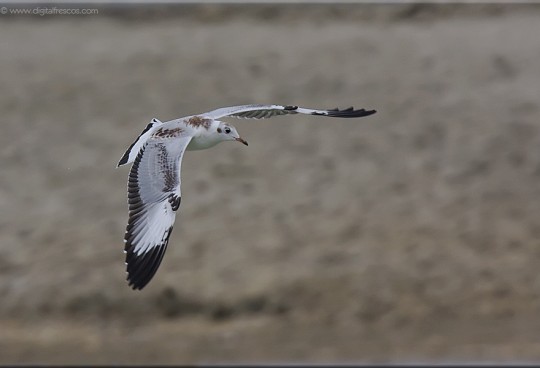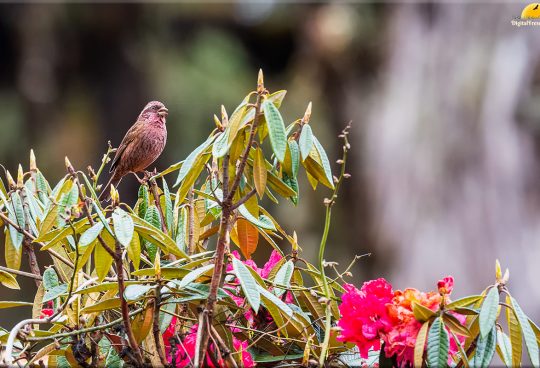The chestnut-eared aracari, or chestnut-eared araçari (Pteroglossus castanotis), is a bird native to central and south-eastern South America. It belongs to the toucan and aracari family (Ramphastidae). The chestnut-eared aracari is a larger, more colorful bird than the black-necked aracari, which it otherwise resembles. The Chestnut-eared Aracari is a medium-sized toucan of the Amazon Basin of South America, especially the southern and western parts of the basin. It can be very common in its range and has the widest distribution of any of the aracaris. Chestnut-eared Aracari is primarily frugivorous but also feeds on invertebrates. It is an attractively patterned species with a large yellow and black bill, a pale eye surrounded by blue facial skin, dark upperparts, and a yellow belly divided by a red band.
Like others in the genus Pteroglossus, its diet mainly consists of fruit taken from trees in the area, sometimes retrieved by hanging upside-down. The chestnut-eared aracari also may include flower nectar, insects, and nuts in its diet as well.[4] Engaging in behavior similar to the saffron toucanet, they also appear to prey on the nests of other bird species, eating the eggs and baby birds. The range of the chestnut-eared aracari is the southern Amazon Basin, especially the southwestern of this region. It is also found in the eastern Andean foothills; a narrowing range extension enters central-southern Colombia by 900 kilometres (560 mi). The southern Amazon Basin range narrows in the southeast to only the upstream half-headwaters of the north-flowing Amazon River tributaries. This range continues southeastwards into the central and southern cerrado and ends in the Paraná River region in eastern Paraguay, Bolivia, southeastern Brazil and the extreme northeast of Argentina. It is very present in Bolivia, notably in the Aquicuana Reserve, located in the Beni Department, near the city of Riberalta, the Capital of the Bolivian Amazon. It is classified as least concern by IUCN.
![]()






Sorry, the comment form is closed at this time.